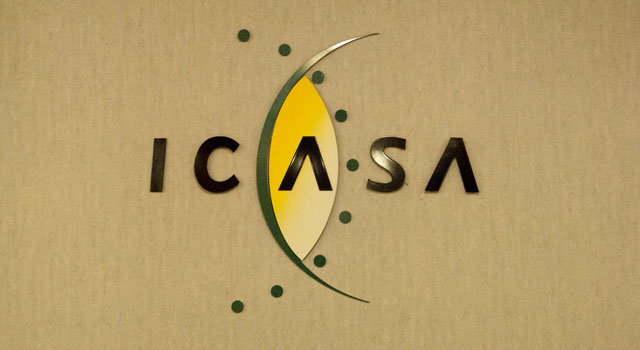 The soon-to-be-promulgated changes to the laws that govern South Africa’s information and communications technology sector, found in the Electronic Communications Amendment Act and the Icasa Amendment Act, are still being digested by the sector. Of course, there are many problems with the changed laws, but they provide a basis for cautious optimism.
The soon-to-be-promulgated changes to the laws that govern South Africa’s information and communications technology sector, found in the Electronic Communications Amendment Act and the Icasa Amendment Act, are still being digested by the sector. Of course, there are many problems with the changed laws, but they provide a basis for cautious optimism.
To be welcomed are provisions that provide for penalties for failure to abide by pro-competitive licence conditions. Other positive changes include obligations to maintain separate accounting for any services specified by communications regulator Icasa; to maintain structural separation for the provision of any services specified and wholesale and retail price regulation for specific services.
The biggest problem lies with Icasa. Following the mobile termination rates court decision, the authority’s ability to meet its mandate of regulating in the public interest due to faulty regulation-making process came into focus. It is not just in the mobile termination rates that Icasa is failing; we still do not have a policy for the licensing of 4G/LTE spectrum when other countries have long rolled out their 4G services. Digital migration, although not strictly an Icasa problem, but one nurtured by the department of communications, is another never-ending farce. There are many other failures too numerous to list. One thing is clear, though: this suits the incumbents. One knows that the regulatory system has been captured when the incumbents can threaten to go on an investment strike if they do not get their way with mobile termination rates.
To be fair to Icasa, telecommunications regulators elsewhere have also struggled. America’s Federal Communications Commission (FCC) has come in for severe criticism for its handling of the net neutrality issue and the consolidation of cable companies. Icasa is at an enormous disadvantage. With an annual budget of just R350m, it has to regulate companies like Vodacom with annual revenues in South Africa of closer to R50bn. Many ex-Icasa staffers find themselves in well-paying jobs in the telecoms sector. Icasa is in an impossible position. So, what to do?
A solution does present itself, but it will require a different mindset to government’s thinking on how to regulate the sector. The national broadband policy, for example, does a fair job of analysing the current state of our telecoms sector and then tries to map out a way to achieve a series of targets. But it buys into the idea that good decisions can be a product of orderly processes. If only Icasa, the thinking goes, could initiate orderly processes, it would not have its decisions set aside.
Perhaps the answer lies not in setting targets or hoping for orderly processes to achieve them, but rather in the introduction of competition policy into all aspects of telecoms and broadcasting in South Africa. The change in mindset required for this is significant because it introduces “obliquity” to the equation. John Kay, author of the fascinating book Obliquity, recommends that one has to put aside targets, especially when these are constantly changing with new technologies with new capabilities. Instead, Icasa should focus only on how competition policy can be introduced into the sector at all levels. Targets are things achieved obliquely. The new legislation allows for this because, in it, the minister of communications, in consultation with cabinet colleagues and Icasa, must develop a policy and policy directions for the rapid deployment of telecoms networks.
The objective of competition policy and direct regulation is different. Competition policy serves to address market failures such as abuse of market power, natural monopolies, externalities and information asymmetries — as well as to distribute outputs more equitably. David Lewis, former head of the Competition Tribunal, categorises the different aspects of competition regulation in his 2000 paper as follows:
- Competition regulation looks at the structure of markets, controls anticompetitive behaviour and reviews mergers.
- Economic regulation adopts and implements measures to control monopoly pricing and to ensure appropriate levels of consumer protection through regulatory mechanisms such as cost-of-service regulation (eg. rate of return) or incentive regulation which could involve price or revenue caps, or yardstick or performance-based franchising regulation.
- Technical regulation sets and monitors standards so as to assure compatibility and to address safety and environmental protection and similar concerns.
- Public interest regulation addresses distribution and equity imbalances.
The main benefit of using competition is that it provides a ready-made coherent conceptual framework for regulation and in doing so reduces the scope of regulation. A well-functioning competitive market provides better incentives and outcomes than a regulated market. A degree of oversight and monitoring is still necessary to ensure competitive outcomes.
That the telecoms and broadcasting sector can be better regulated with competition policy is gaining traction everywhere. The US is dealing with how net neutrality is progressively being lost, but its regulator is finding the abstract concept of net neutrality difficult to define and therefore almost impossible to protect. So, when cable companies want to merge, net neutrality does not provide a sound foundation against which to consider a merger. The FCC has been criticised for making a series of ad hoc decisions on a case-by-case basis that are haphazard and devoid of economic rigour. It is exactly this which seems to ail Icasa. Critics of the FCC’s approach suggest not treating the Internet as something special and focus only on actual abuses of market power.
In South Africa, section 21(1) of the Competition Act provides that the Competition Commission can enter into agreements with any regulatory authority (such as Icasa) to co-ordinate and harmonise the exercise of their respective jurisdictions even in regulated sectors to ensure the proper application of competition law. Competition law provides a powerful, coherent framework for regulation and a toolbox of well understood measures to correct any shortcomings not solved by fair competition between market participants. None of this is to say that Icasa can or should hand over its responsibilities. In any event, as a broadcasting regulator, it is a chapter 9 institution, much like the public protector or the Human Rights Commission.
If Icasa was to go this route, one of its most important roles would be to get the structure of the telecoms and broadcasting sectors right. This is not that easily done in a rapidly changing sector of increasingly converged technologies.
Icasa’s first role would be to define distinct markets on a technology neutral basis and avoid the position it took in a 2010 policy paper on Internet Protocol television (IPTV) and video-on-demand (VOD) Services. In it, it determined that IPTV should be licensed as a broadcasting service, while VOD should be licensed as an electronic communications service. This just does not make any sense.
One way to set about defining markets will require a departure from regulating along vertical industry sectors of telecoms, broadcasting and IT. This vertical regulatory model is based on communications services and the underlying technologies that deliver those services being the same thing. Instead, markets could be defined using the logic of Internet protocol-based technologies that work in horizontal layers. Market definitions can then be tied to a particular layer. This gives a far better view of how Cell C competes with the two incumbents. It also provides a proper basis for analysis on whether Vodacom should be allowed to buy Neotel or whether MTN’s fibre to the home can force subscribers to use MTN as their Internet service provider as well.

The approach of employing competition as an instrument for market regulation has been successfully implemented by UK regulator Ofcom. Once a market is defined, Icasa, with the assistance of the Competition Commission, could impose obligations on providers with significant market power which can include the imposition of measures like disclosure, non-discrimination, must-carry obligations, accounting separation, access to and use of specific network facilities, cost recovery and price controls, or even functional separation. Similarly, as significant market power declines, these measures can be progressively removed as competition develops in a particular market.
There may well be instances where competition law principles are not appropriate. The public broadcaster, local content television rules and the universal access fund springs to mind. The Competition Act itself makes provisions for departures from competition law where this would promote thing like black economic empowerment, prevent job losses, and protect certain industries or trade unions. But then these cases are expressly treated differently, being exempt from competition policy for the express purposes set out in the regulations that exempt them. Provided that the scope of public policy departures from competition policy is not too big, these can be accommodated.
Perhaps, then, it is time for Icasa’s councillors to invite their colleagues at the Competition Commission around and to undertake a proper analysis of the market.
Competition law allows the market to regulate a swathe of activity and allows Icasa to focus on dealing with fashioning remedial actions where there is market failure and where public policy demands it. When, as a regulator, you are out-gunned by huge and powerful market participants, perhaps this is the only way to go.
- Dirk de Vos runs a corporate finance consultancy with a specialisation in the ICT and energy sectors. Find him on Twitter




